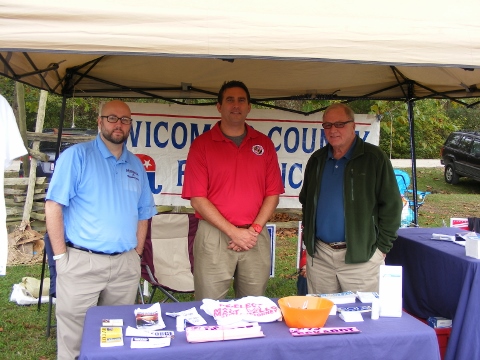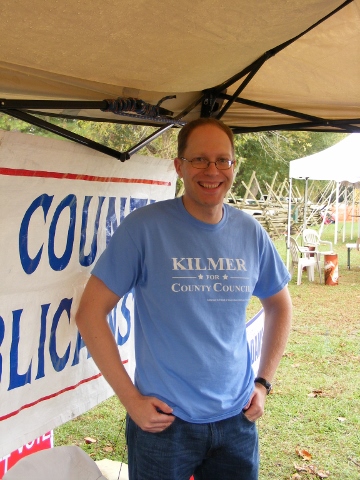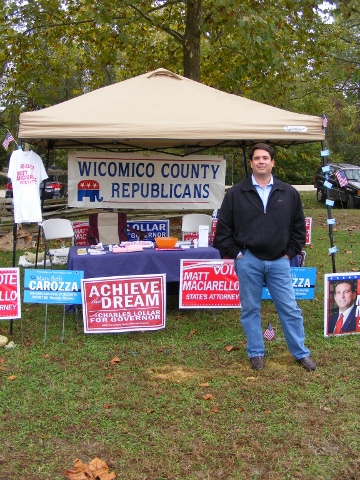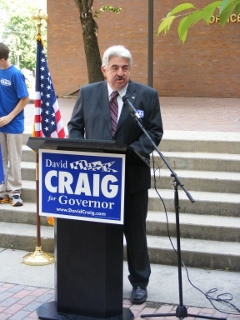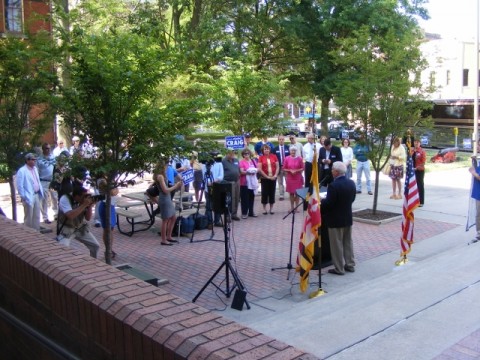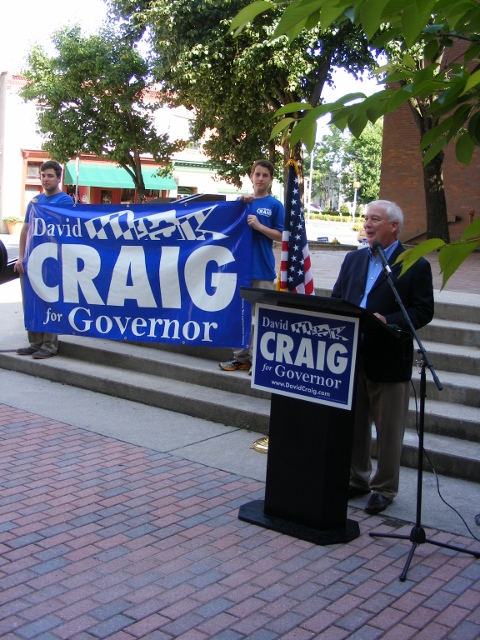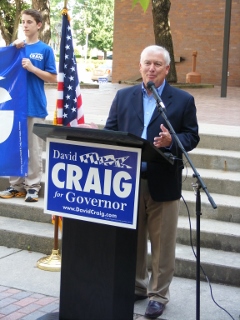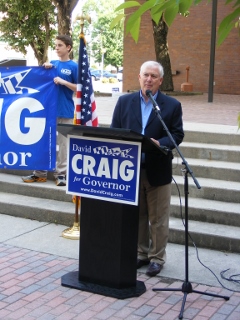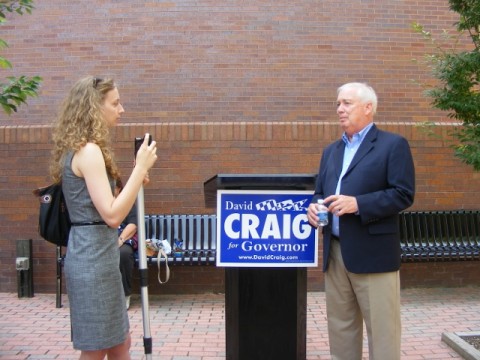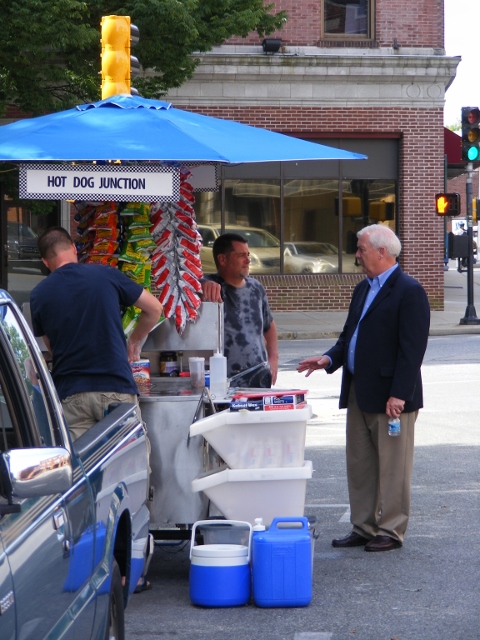
Cover image via Amazon.
One would think I don’t read books anymore, and to be honest I had no idea it had been over a half-decade since I reviewed one here on monoblogue. However, I believed this would be an interesting tome with which to renew the tradition, given the local connection of both subject and author, a retired communication professor from Salisbury University.
Moreover, I thought I could shine a unique light on the book as both a published author myself – someone who knows what it’s like to put together a book requiring hours of research and attempting to make it palatable to a reader who wishes to know more about the subject – and as a former constituent and eventual supporter of the title subject. There were quite a few names familiar to me dropped within the book; as one would imagine that drove a lot of my interest in reading a volume that my wife actually purchased for her enjoyment. (It’s why I’m waiting a week or so to put out this review so as not to give her any spoilers.)
Mike Lewis, however, was not just my sheriff when I lived in Wicomico County before crossing over to Delaware two-plus years ago. Arguably the national platform for drug interdiction and Second Amendment support he’s created via his frequent media appearances make Lewis the third-most recognizable figure of his generation with a Salisbury-area background, trailing only Terminator series actress Linda Hamilton and longtime Weather Channel meteorologist Mike Seidel.
Furthermore, not only are Lewis and I almost perfect contemporaries in age and upbringing as we were both born in the same year and have at least some (in my case) amount of rural background, there’s always been that political aspect surrounding him – once he became a household word in Wicomico during his first campaign in 2006, swamping a four-person GOP primary field with 59.7% of the vote then winning handily that November, Mike got to a point where supporters would have jumped at the chance to help elect him to any higher office he wanted. One interesting tidbit I found in SMLCU is that he once promised his wife he would only serve two terms as Sheriff, but instead filed for a fifth last year. Should he be re-elected in 2022, though, he would match his immediate predecessor, the late Sheriff Hunter Nelms, with five electoral victories. Coming back for a sixth term in 2026 would give Lewis the opportunity to serve even longer than Nelms’s 22 years on the job. (An old-school conservative Democrat, Hunter was appointed in 1984 to finish an unexpired term and served through the 2006 election, where he opted not to seek another term.)
In an epilogue describing his book, Simmons recounts the three themes he was attempting to address: first, Lewis’s ambitions and accomplishments, second, those things that the policing profession entails, and lastly, “the big picture of government and the greater society that places law enforcement in a crucial, albeit vulnerable and often underappreciated position.” Out of the three, the book scores well on the first and last parts, but becomes a bit of a drag on the second portion, much of which comes out as a laundry list of offenses that takes up the book’s second, lengthy chapter – 66 pages out of a book that’s 177 pages, excluding epilogue, acknowledgements, end notes, and photos. (That extra material brings the book to 221 pages overall.)
The problem with that second chapter is that dozens of arrests are detailed, including one I really didn’t need a reminder of – the embarrassing Julie Brewington DUI incident from 2018. (I served with Brewington, a TEA Party leader in Wicomico, for my final two years on the Wicomico County Republican Central Committee.) This list could have been honed down to perhaps a couple dozen of the biggest ones, and the final part of the chapter that mainly deals with incidents in the local schools and at Salisbury University should have been a standalone chapter, particularly as the book then transitions into the seminal case that has occurred under Lewis’s watch: the Sarah Foxwell murder case from Christmas 2009. (One departure from the book: while Lewis talks about tying yellow ribbons to mailboxes to denote yards that had been searched by property owners, I distinctly recall they were asking for red shirts or rags because I remember tying one of my old red shirts to a wagon wheel we kept at the end of the driveway where we then lived in the Foxwell search area so they knew we had checked our property. Perhaps – surprisingly – Mike’s memory is less clear than mine on that one, or maybe it was an either/or situation since most houses don’t have yellow ribbon on hand.)
However, once that slog of a second chapter is complete, the book moves along at a nice pace through the time period and events that made Lewis a household name among county sheriffs nationwide, among them the Foxwell case, assisting at the Baltimore riots in 2015 and becoming an impromptu spokesman for the police gathered there, and Mike’s advocacy for the Second Amendment. We also get a glimpse of then-candidate Donald Trump’s 2016 campaign stop in nearby Berlin and the fact that Lewis initially backed Marco Rubio in the race thanks to a previous encounter with him on a drug interdiction fact-finding mission to South America.
SMLCU also gets its share of ink from a couple local politicians, most notably former Wicomico State’s Attorney turned Circuit Court Judge Matt Maciarello and State Senator Mary Beth Carozza, who gushed that, “Mike Lewis was and is the real deal when it comes to defining a top cop – a leader through and through, who day in and day out, leads by example.” While Wicomico County has strong leadership in that regard, it should be pointed out that there was a modest write-in campaign against him in 2018 that netted perhaps 7% of the vote – most likely from malcontents in the local “defund the police” crowd who don’t like Lewis’s aggressive stance toward crimefighting. I have news for them: it’s clear from this book that he doesn’t like them, either.
Unfortunately, all books have a cutoff date for production and printing, so one loose end that would have been worth following up and asking more about was the effort by Lewis to declare Wicomico County a Second Amendment preservation county last year. It ends with a vow to reintroduce the legislation this year, but the question is whether the county would take up something like that in an election year. There were a lot of disappointed people when Lewis backed away from the bill, which many believe is necessary as a counterweight to the overbearing government in Annapolis and Washington, D.C. The book quotes former Delegate Don Dwyer as claiming, “The role of the sheriff is to be an interposer between the law and the citizen.” Added Dwyer, “Sheriffs do have the power to nullify or ignore a law if it is unconstitutional.” Pointed out several times in the book is the fact the sheriff (as opposed to a police chief) is an elected official, thus the public trust is placed upon the officeholder with the accountability of election always in the background.
In sum, a tidier book may have gotten the point across with more brevity, but overall this is an interesting look at a law enforcement officer who has perhaps gone out of his way to have an outsized influence on people both inside and outside his chosen profession. I recall when Mike was first running that I worried about his outside interests:
Lewis is a wonderful teacher. I sat in last month’s WCRC meeting and was fascinated by Mike’s presentation. I’m not a cop but I learned a lot about traffic stops and drug interdiction from just 20 or 30 minutes listening to him speak. Had Hunter Nelms decided to run for another term, I’m certain Mike Lewis would be starting a second career traveling the country and even internationally as a teacher and expert on drug interdiction. It almost seems like a waste having him as a county sheriff when he could do a great job and touch many more people with a career path like he was contemplating.
“For Wicomico County Sheriff,” August 20, 2006.
As it turns out, he was more of a multitasker than I gave him credit for – since I endorsed his chief Republican opponent for the primary before backing Lewis in the general – and the book overcomes its flaws to make most of those points.
Finally, in the interest of full disclosure, I am (indirectly) quoted in this book as “a blogger.” Simmons quoted a blog post I did in 2013 at the Second Amendment townhall meeting held by Lewis, which is also credited in the end notes. I guess, thanks to this review, Haven now gets unsolicited advice for a second edition of this book should one come about.


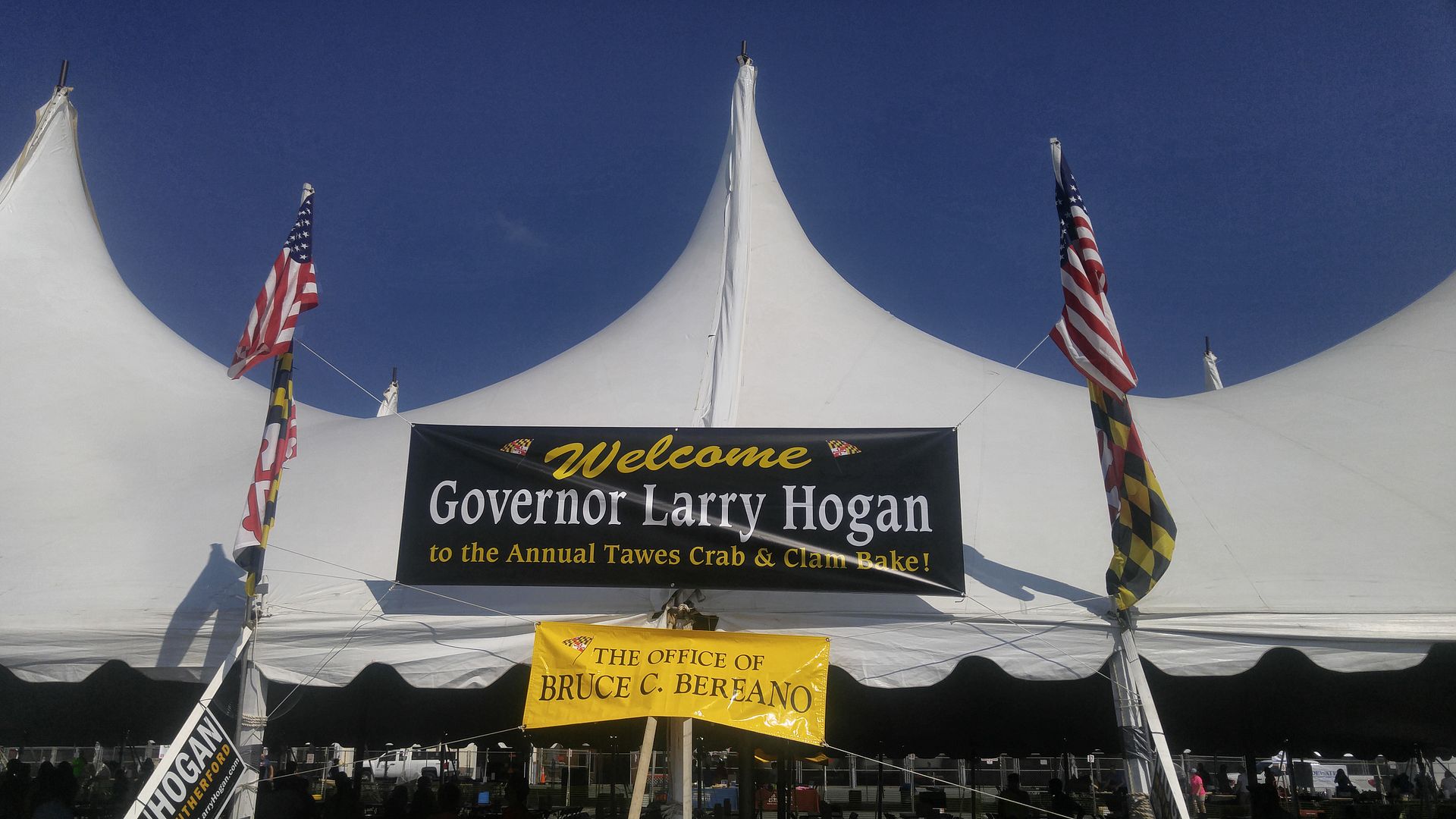






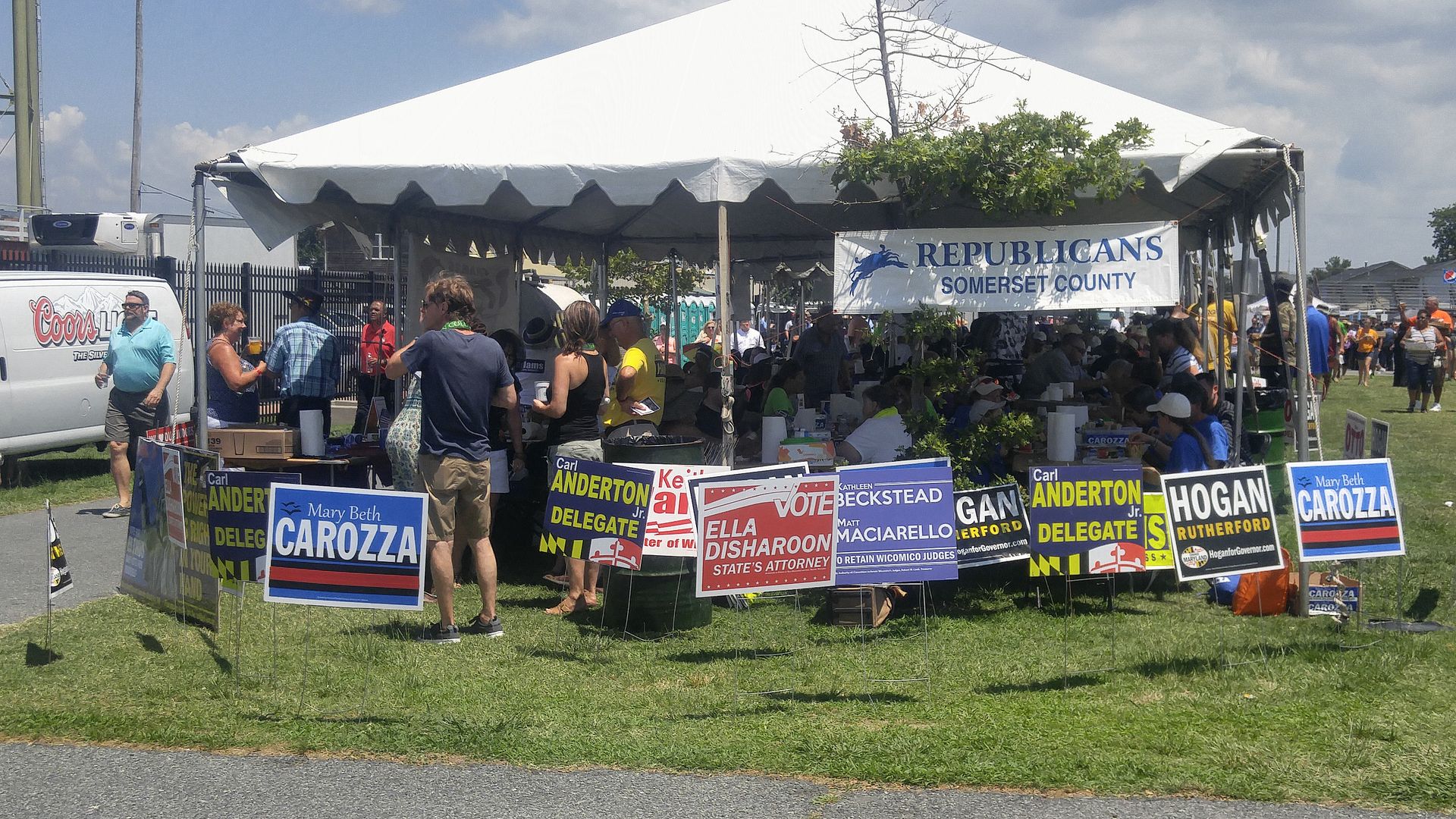

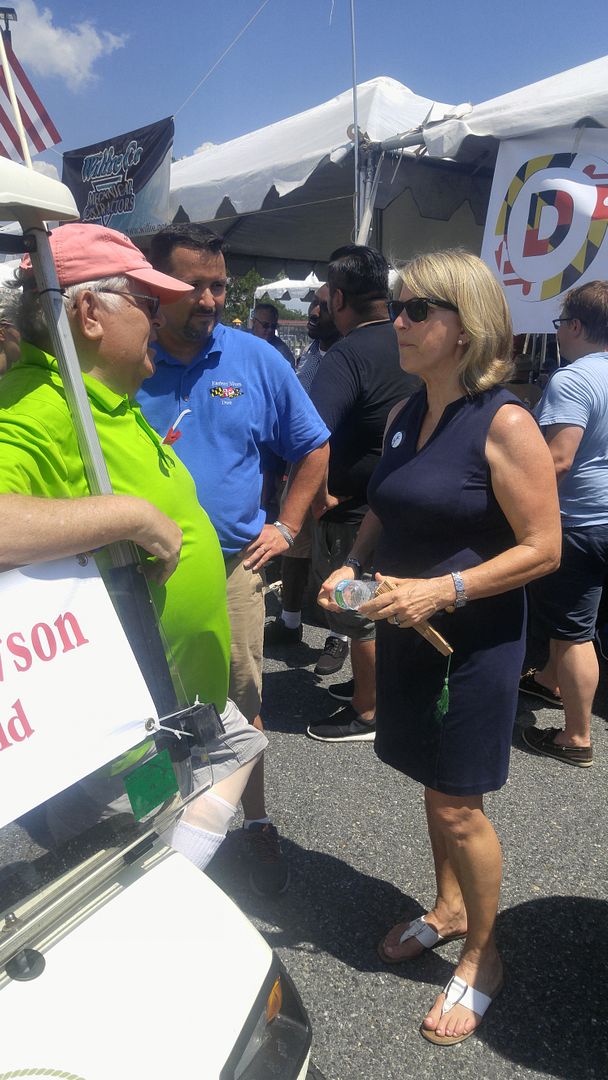








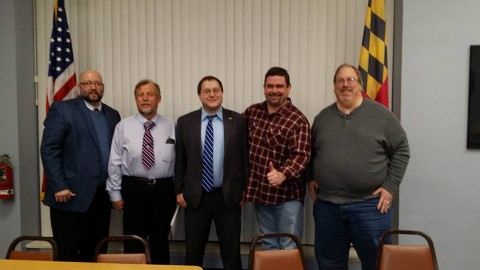
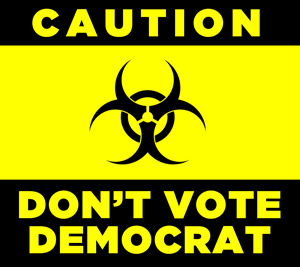 Most newspapers will use their Sunday edition before the election to either make the most key endorsement, such as for governor or president, or summarize their endorsements into a ballot guide for voters.
Most newspapers will use their Sunday edition before the election to either make the most key endorsement, such as for governor or president, or summarize their endorsements into a ballot guide for voters.




